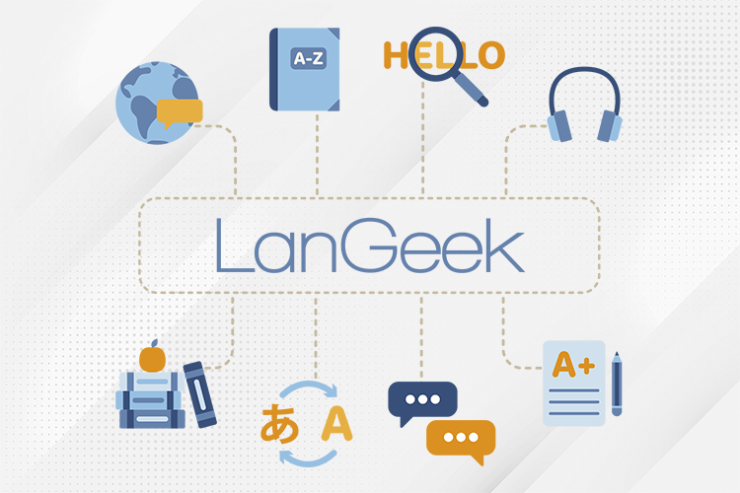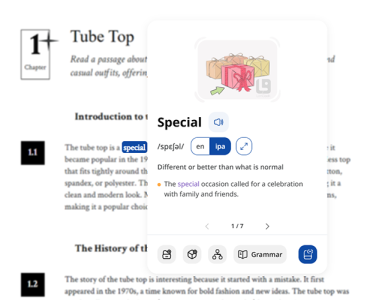One of the most popular and influential theories of language learning is the input hypothesis, developed by linguist Stephen Krashen. This hypothesis states that language learners acquire the target language by receiving comprehensible input, that is, language that is slightly above their current level of competence. By exposing themselves to information (in this case in the form of content) that is meaningful and interesting, learners can gradually learn the vocabulary, grammar, and pronunciation of the target language.
However, the input hypothesis also poses a challenge, how to find the appropriate content for learners based on their level of fluency? If the content is too easy or too difficult, the learning efficiency will decrease dramatically. Finding the right content can be time-consuming and frustrating for learners.
Introducing LanGeek: The Language Learning Platform Based on the Input Hypothesis and AI
This is where LanGeek comes in. LanGeek is a language learning platform that we created as a startup. LanGeek is based on the input hypothesis and the data from polyglots like Steve Kaufmann who believe the best way to start learning a language is to learn as many words in the form of passive vocabulary, but it also uses artificial intelligence to solve the problem of finding suitable content for learners.
The LanGeek Way: Grammar Basics, Fast Word Learning, and Real-World Content
The way LanGeek works is to help language learners get familiar with the basics of the grammar and then have tools and resources to learn as many words as fast and easy as possible. For example, LanGeek offers flashcards, quizzes, games, and spaced repetition systems to help learners memorize and review words. LanGeek also provides learners with personalized word lists based on their level, interests, and goals.
The next step, which we have not fully implemented yet, is to collect data from users and provide them with real-world content to use and change their passive vocabulary and grammar into active data. LanGeek will use natural language processing and machine learning to analyze texts and audio from various sources and extract the most relevant and useful words for learners. LanGeek will also offer features such as subtitles, transcripts, translations, annotations, and interactive exercises to help learners understand and engage with the content. LanGeek will use artificial intelligence to track learners’ progress and performance and recommend them the best content for their needs.
Why LanGeek is a Unique and Innovative Language Learning Platform
We believe that LanGeek is a unique and innovative language-learning platform that can help learners achieve fluency and proficiency in their target language. By combining the input hypothesis with data from polyglots and artificial intelligence, LanGeek offers learners a comprehensive and effective way to learn languages. We hope that LanGeek will inspire more people to discover the joy and benefits of learning languages.





Add comment